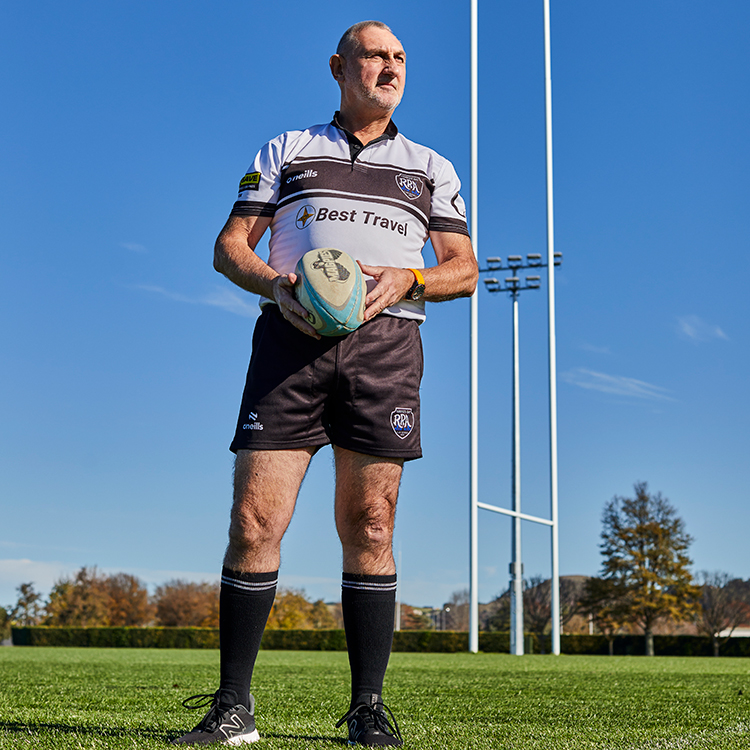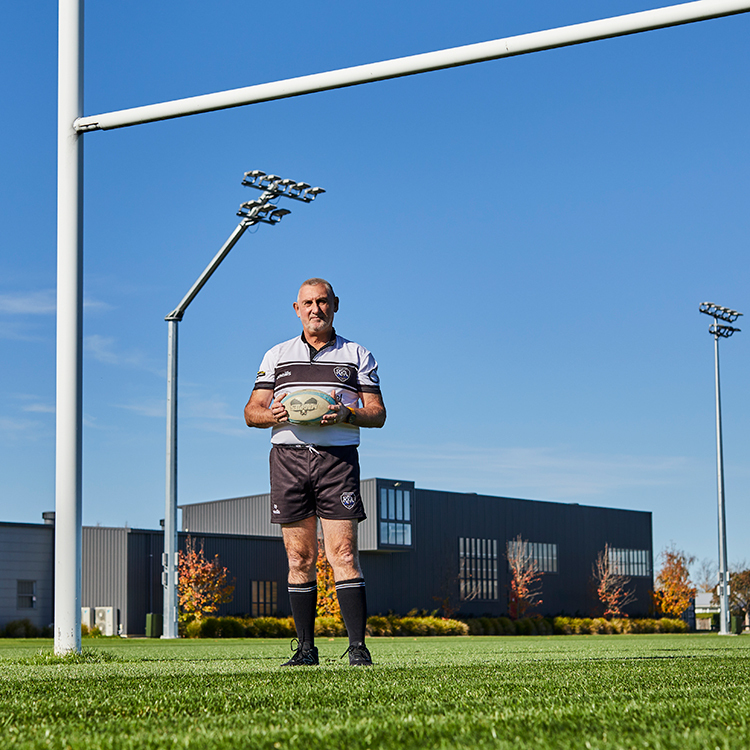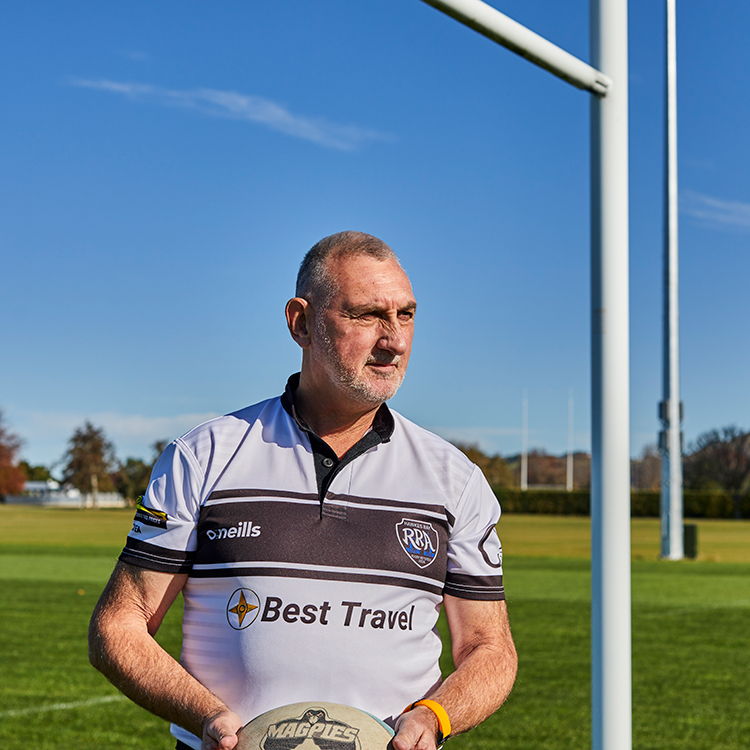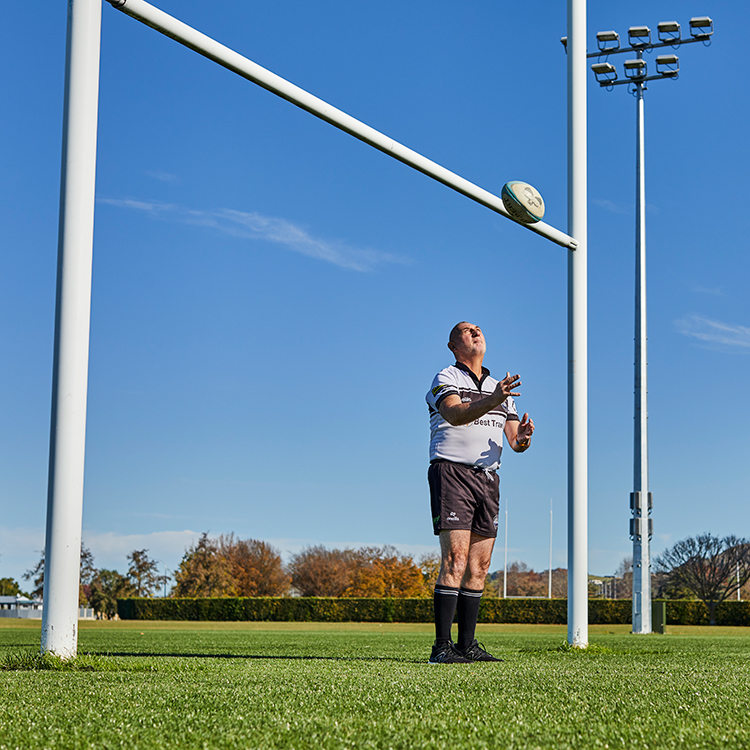
Wheel Love: a 2000 Honda Insight
Andrew Gladstone shares what he loves about his unusual 2000 Honda Insight, one of the first hybrid vehicles ever made.

Brent Malone is the Chairman of the Hawke’s Bay Rugby Referees Association and a passionate referee actively involved in grassroots rugby.
When did you begin refereeing?
I started in 1990. I played club rugby both in Hawke’s Bay and in Auckland, then went on to play premier rugby but eventually, through injury, I couldn’t do it anymore, so I took up the whistle.
How many games have you officiated?
About 1,000 games. But if you include the other support roles, it’d be double that. This is my 35th year, so we’re talking 35 consecutive years of running around a paddock. It does get harder!
What sort of training is involved to learn how to be a referee?
When I started the training was pretty average! Nowdays we have a much higher level of support. Anybody who joins our association is buddied-up with an experienced referee. There are lots of good training modules and development programmes, and content available from the New Zeald Rugby Union. It’s getting better and better.

Obviously you need to have a pretty good understanding of the rules of the game?
You have to make a decision based on a split second, so there are some areas where it comes down to interpretation. You have to make a call based on a situation or behaviour where it will have a material impact on the game. For new referees, we try to to coach them through making the right decision at the right time. We don’t have the luxury of falling back on camera feeds or TMO. When you’re on your own it can be very subjective. But it’s also so important to be confident and positive about your decision.
How fit do you have to be?
You’ve got to be able to manage a game and stay with the players. It’s an 80 minute game, so it’s not for the faint hearted!
But it’s a combination of mental fitness as well as physical fitness. You have to be in the right headspace. You’ve got to have empathy and understanding and create a relationship with teams that enables you to make good decisions. Equally, when you need to make some hard calls, you need the rapport to do that with captains.

What is the commitment required of referees?
We can get assigned to games anywhere between Wairoa, Dannevirke and Pōrangahau and right across Hastings and Napier.
We’re all volunteers; we’re not paid to referee games. I’m actually opposed to the idea of being paid. It’s our sport and refereeing is our contribution to the game. We’re fortunate to be supported by Hawke’s Bay Rugby Union who provide a travel allowance but that only covers a fraction of what we’d spend to get to games. It is what it is. The majority of referees do it for the love of the game and their desire to give back to the sport.
What are some of the challenges you face as a referee on the pitch?
Abuse has been one of the major issues that has contributed to the loss of referees. It can take a lot of different forms. Some of it is on the field and you can generally deal with that pretty well – you’ve got more options on the pitch. But spectator abuse is very difficult to manage. Whether it’s through emotion or ignorance, the level of abuse that can be directed at us can be quite confrontational and threatening. It has got better over the years through education and with the support of the rugby union – here in Hawke’s Bay particularly – and a zero tolerance programme.
When the crowd is engaged and respectful it makes each game so much more enjoyable. When you get spectators coming up to you afterwards saying how great the game was you know you’ve done a good job.

What makes a good referee?
Someone who has empathy and understanding of the game. You need to realise that it’s not about the referee, it’s about the two teams. You’re there to ensure that the game is played in the spirit it’s intended. So, if you’ve got the trust of the players and management, then the game’s a win. If you’re coming in with a different mindset to that, I think you’d open yourself up to problems.
What do you personally enjoy most about refereeing?
Rugby has been part of my life for a very long time. I love the game and I still really enjoy getting out there and getting involved. It can be a lonely situation sometimes: you’re on your own in the middle of the field. Or you turn up to a club as a referee and everybody kind of looks at you sideways.
But the relationships that you create with players and clubs is one of the real enjoyments. I’ve made some really good friends over the years and we’ll happily have a beer after a game and talk about all the rights and the wrongs.

What does the future look like for refereeing in New Zealand?
The future is a concern. We’re an ageing group. We’re actively encouraging membership and seeking out players who have retired for whatever reason but who still want to be involved in the game.
The reality is we’re not getting the level of engagement that we used to. Across the country the average age of referees is 40 to 50. That is a problem because retention of referees has a material impact on the quality of the game. We’ve been able to manage covering games to a high level across Hawke’s Bay, but that’s as a result of referees doing two or three games each Saturday, not because we’ve got the numbers to cover all the games. I believe it’s a similar situation across the country.
We’re an ageing group – I’m in my 60s now – and sooner or later we’ll be hanging up our boots. I’ll always be part of the game in some shape or form, but I might not be in the middle.
This story is from the Winter 2025 issue of AA Directions magazine.